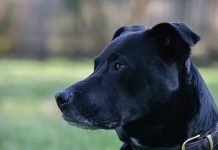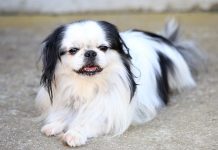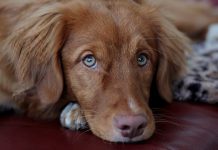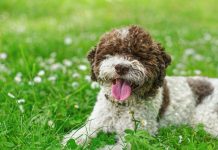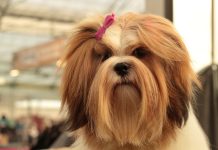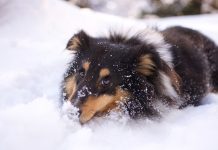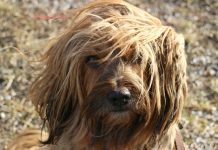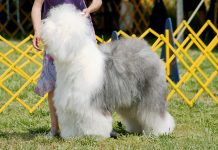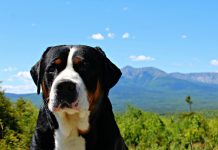History and Origins of the Leonberger Breed

The Leonberger is a majestic and large breed of dog with a fascinating history. Here’s an overview of the history and origins of the Leonberger:
- Origin in Germany:
- The Leonberger breed was developed in the town of Leonberg, Germany, in the mid-19th century.
- The breed’s founder, Heinrich Essig, crossed various breeds, including Saint Bernards, Newfoundlands, and Great Pyrenees, to create a dog resembling the lion on the town’s crest.
- Purpose as a Noble Companion:
- The Leonberger was bred to be a versatile and noble companion dog for royalty, aristocrats, and wealthy families.
- They were valued for their size, strength, intelligence, and gentle temperament.
- Popularity in Europe:
- The breed gained popularity across Europe, particularly among nobility and aristocracy.
- Leonbergers were admired for their impressive appearance, loyalty, and versatility as draft dogs, water rescue dogs, and family guardians.
- Near Extinction and Restoration:
- The Leonberger breed faced near extinction during World War I and World War II due to the destruction and instability in Europe.
- Dedicated breed enthusiasts, including breeders in Germany and Switzerland, worked to revive the breed post-war by carefully breeding surviving Leonbergers.
- Recognition and Spread:
- The Leonberger breed was officially recognized by the German Kennel Club (VDH) in 1891 and later by other kennel clubs, including the American Kennel Club (AKC) in 2010.
- Today, Leonbergers are cherished as beloved family companions and working dogs around the world.
Physical Characteristics and Appearance of Leonbergers
The Leonberger is a large, powerful, and majestic dog with distinctive physical characteristics. Here’s a detailed look at the breed’s appearance:
- Size and Proportions:
- Leonbergers are one of the largest dog breeds, with males typically standing 28 to 31.5 inches (71 to 80 cm) tall at the shoulder and weighing 110 to 170 pounds (50 to 77 kg). Females are slightly smaller.
- They have a strong and proportionate build, exhibiting a harmonious balance of size and elegance.
- Coat and Color:
- The Leonberger’s coat is dense, water-resistant, and moderately long, with a soft undercoat and a straight or slightly wavy outer coat.
- The breed’s coat color can range from lion-yellow to red, red-brown, and sand-colored. Black mask and black-tipped hairs are common, especially on the face and ears.
- Head and Expression:
- Leonbergers have a distinctive head with a broad skull, pronounced stop, and a slightly arched forehead.
- They have a gentle, intelligent expression with dark, almond-shaped eyes and a black nose.
- Ears and Tail:
- The breed’s ears are medium-sized, pendant, and set at eye level, hanging close to the head.
- Leonbergers have a long, bushy tail that reaches to the hocks and is carried low at rest.
- Gait and Movement:
- Leonbergers move with a smooth, balanced gait, covering ground effortlessly. They have a powerful and graceful stride.
- Overall Appearance:
- Leonbergers are known for their gentle and friendly expression, calm demeanor, and confident presence. They are often described as “gentle giants” due to their impressive size and affectionate nature.
The Leonberger’s combination of size, strength, intelligence, and gentle temperament makes them a popular choice for families seeking a devoted companion and versatile working dog. Their history as noble companions and their striking appearance continue to captivate dog lovers worldwide.
Leonberger Temperament and Personality Traits:
- Gentle and Friendly:
- Leonbergers are gentle giants known for their friendly and affectionate disposition. They are excellent with children and enjoy being part of the family.
- Loyal and Protective:
- Leonbergers are loyal and devoted to their families. They have a protective instinct and will act as natural watchdogs, alerting you to strangers or potential threats.
- Good-Natured and Calm:
- Despite their size, Leonbergers have a calm and easygoing nature. They are not overly excitable and typically handle new situations with composure.
- Intelligent and Willing to Please:
- Leonbergers are intelligent dogs that respond well to positive training methods. They are eager to please their owners and enjoy learning new tasks.
- Social and Sociable:
- Leonbergers are social dogs that thrive on human companionship. They enjoy being included in family activities and may experience separation anxiety if left alone for long periods.
- Confident and Self-Assured:
- Leonbergers exhibit confidence in their interactions with people and other animals. Early socialization helps reinforce positive behaviors and ensures they remain well-mannered.
- Moderate Energy Level:
- While Leonbergers are large dogs, they have a moderate energy level. They enjoy regular exercise but are not hyperactive. Daily walks and playtime are sufficient to keep them content.
- Adaptable and Versatile:
- Leonbergers are adaptable to various living environments, including apartments or houses with fenced yards. They are sensitive to heat and prefer cooler climates.
Training and Socialization Needs for Leonbergers:
- Early Socialization:
- Start socializing your Leonberger puppy early to expose them to different people, pets, and environments. This helps prevent shyness or timidity as they mature.
- Positive Reinforcement Training:
- Use positive reinforcement techniques such as treats, praise, and rewards to train your Leonberger. They respond well to gentle guidance and consistency.
- Basic Obedience Training:
- Teach basic commands such as sit, stay, come, and leash manners from a young age. Leonbergers are intelligent and can excel in obedience training.
- Gentle Handling:
- Due to their large size, it’s important to handle Leonbergers gently and with positive reinforcement. Avoid harsh training methods, as they may become timid or fearful.
- Consistent Exercise Routine:
- Provide regular exercise to keep your Leonberger physically and mentally stimulated. Daily walks, interactive play, and activities like swimming are beneficial for this breed.
- Supervised Interaction:
- Monitor interactions with small children or other pets due to the Leonberger’s size. Early socialization and training can help them develop good manners around others.
- Patience and Understanding:
- Leonbergers mature slowly and may not reach full maturity until around three years of age. Be patient and understanding during their development stages.
By providing early socialization, positive reinforcement training, and regular exercise, you can help your Leonberger develop into a well-behaved and loving companion. Their gentle nature, loyalty, and adaptability make them an excellent choice for families seeking a devoted canine companion.
Health Considerations and Common Issues in Leonbergers:
- Hip Dysplasia:
- Leonbergers can be susceptible to hip dysplasia, a condition where the hip joint doesn’t develop properly, leading to arthritis and mobility issues. Responsible breeders screen their breeding dogs for hip dysplasia.
- Elbow Dysplasia:
- Elbow dysplasia is another common orthopedic condition in Leonbergers, affecting the elbow joint and causing lameness and discomfort. Regular veterinary check-ups and appropriate exercise can help manage this condition.
- Gastric Dilatation-Volvulus (GDV) or Bloat:
- Leonbergers, like many deep-chested breeds, are at risk of GDV, a life-threatening condition where the stomach twists and fills with gas. Feeding multiple small meals, avoiding vigorous exercise after meals, and knowing the signs of bloat are essential for prevention.
- Heart Conditions:
- Leonbergers may be prone to certain heart conditions, such as dilated cardiomyopathy (DCM), a disease that affects the heart muscle’s ability to pump blood effectively. Regular cardiac screenings are recommended.
- Orthopedic Issues:
- Besides hip and elbow dysplasia, Leonbergers can also experience other orthopedic issues like osteochondritis dissecans (OCD) and arthritis. Maintaining a healthy weight, providing appropriate exercise, and avoiding excessive jumping can help prevent these problems.
- Eye Conditions:
- Leonbergers may be predisposed to certain eye conditions, including cataracts, progressive retinal atrophy (PRA), and entropion (inward rolling of eyelids). Regular eye examinations by a veterinary ophthalmologist are recommended.
- Cancer:
- Unfortunately, Leonbergers have a higher incidence of certain cancers compared to other breeds. Common types include osteosarcoma (bone cancer), hemangiosarcoma, and lymphoma. Early detection and prompt veterinary care are crucial.
Living with a Leonberger: Suitable Environments and Lifestyle Considerations:

- Space and Exercise:
- Leonbergers are large, active dogs that require ample space to move around. A fenced yard is ideal for them to exercise and play safely.
- Regular exercise, including daily walks and interactive play sessions, is essential to keep Leonbergers physically and mentally stimulated.
- Climate Considerations:
- Leonbergers have a thick double coat and may be sensitive to heat. Avoid strenuous exercise during hot weather and provide plenty of shade and water.
- Grooming Needs:
- Leonbergers require regular grooming to maintain their coat’s health and prevent matting. Weekly brushing and occasional baths are recommended.
- Socialization and Training:
- Early socialization and obedience training are essential for Leonbergers to develop good manners and confidence.
- Positive reinforcement training methods work best with this breed due to their sensitive nature.
- Family Interaction:
- Leonbergers thrive on companionship and enjoy being part of the family. They are gentle with children but should always be supervised due to their size.
- Regular Veterinary Care:
- Schedule regular veterinary check-ups, vaccinations, and preventive care to monitor your Leonberger’s health and detect any potential issues early.
- Nutrition:
- Feed a high-quality diet appropriate for large breeds to support your Leonberger’s growth and overall health. Avoid overfeeding to prevent obesity, which can exacerbate joint issues.
By addressing these health considerations and lifestyle needs, you can provide a safe and enriching environment for your Leonberger companion. Responsible breeding practices, regular veterinary care, proper nutrition, and attentive care are key to ensuring a long and healthy life for this magnificent breed.
Leonberger Variations and Breeding Practices
The Leonberger breed is relatively standardized in terms of appearance and coat color, with specific breed standards established by kennel clubs. However, responsible breeding practices play a crucial role in maintaining the health, temperament, and overall quality of Leonbergers. Here’s an overview of Leonberger variations and breeding practices:
Leonberger Variations:
- Coat Color:
- Leonbergers typically have a coat color that ranges from lion-yellow to red, red-brown, or sand-colored.
- Black mask and black-tipped hairs are common, especially on the face, ears, and tail.
- While variations in coat color are possible within the breed standard, Leonbergers should primarily exhibit the characteristic colors associated with the breed.
- Size and Structure:
- Leonbergers are a large and robust breed, with males typically standing 28 to 31.5 inches (71 to 80 cm) tall at the shoulder and weighing 110 to 170 pounds (50 to 77 kg).
- Females are slightly smaller but still substantial in size.
- Breeders aim to produce Leonbergers with a balanced and proportionate build, reflecting the breed’s strength and elegance.
Breeding Practices:
- Health Testing:
- Responsible Leonberger breeders prioritize health testing to screen for hereditary health conditions common in the breed, such as hip dysplasia, elbow dysplasia, heart issues, and eye disorders.
- Testing breeding dogs helps identify carriers of genetic conditions and minimizes the risk of passing on these traits to offspring.
- Temperament and Character:
- Breeders select breeding pairs based on temperament, ensuring that both parents exhibit the gentle, friendly, and confident disposition typical of Leonbergers.
- Good breeding practices aim to preserve the breed’s desirable traits, including loyalty, intelligence, and adaptability.
- Ethical Breeding Practices:
- Ethical Leonberger breeders adhere to established breed standards and guidelines set by reputable kennel clubs and breed organizations.
- They prioritize the health and welfare of their dogs, providing proper care, nutrition, and socialization to puppies from birth.
- Avoidance of Close Inbreeding:
- Responsible breeders avoid close inbreeding (breeding related dogs) to maintain genetic diversity within the Leonberger gene pool.
- Outcrossing with unrelated dogs may be considered to introduce new bloodlines and reduce the risk of inherited health issues.
- Focus on Breed Improvement:
- Dedicated breeders are committed to improving the Leonberger breed through selective breeding practices aimed at producing healthy, well-rounded dogs that conform to breed standards.
- They participate in breed-specific events, such as conformation shows and performance competitions, to showcase their dogs’ qualities and receive feedback from experts.
Leonbergers are a majestic and beloved breed known for their gentle nature, impressive size, and distinctive appearance. Responsible breeding practices are essential for maintaining the breed’s health, temperament, and adherence to established standards. If you’re considering adding a Leonberger to your family, seek out reputable breeders who prioritize health testing, ethical practices, and the well-being of their dogs. A healthy and well-bred Leonberger will make a wonderful companion and cherished member of your household.
50 Best Names with Meanings for Leonbergers
Here are 50 great names with meanings for Leonbergers:
Male Names:
- Leo – Short for Leonberger and means “lion” in Latin.
- Max – Means “greatest” or “the greatest” in Latin.
- Thor – Named after the Norse god of thunder.
- Rex – Latin for “king,” fitting for this majestic breed.
- Bruno – Means “brown” in German, suitable for Leonbergers with a darker coat.
- Hugo – Means “mind,” “spirit,” or “intelligence.”
- Gus – Short for Gustav, meaning “staff of the gods.”
- Tucker – Means “fabric pleater,” but it’s a great name for a Leonberger.
- Apollo – Named after the Greek god of the sun and light.
- Winston – Means “joy stone” or “joyful town.”
- Kai – Means “sea” in Hawaiian, perfect for a water-loving breed.
- Duke – A noble title fitting for this regal breed.
- Finn – Means “fair” or “white.”
- Bear – Represents strength and power, suitable for a large breed like the Leonberger.
- Oliver – Means “olive tree,” symbolizing peace and friendship.
- Zeus – Named after the king of the Greek gods.
- Hunter – Reflects the breed’s history as a hunting and working dog.
- Cooper – Refers to a barrel maker, but it’s a strong and friendly name.
- Rocky – Symbolizes strength and endurance.
- Samson – Known for his immense strength in the Bible.
- Odin – Named after the Norse god associated with wisdom and war.
- Simba – Means “lion” in Swahili, fitting for the Leonberger’s appearance.
- Harley – A spirited and adventurous name.
- Ranger – Reflects the breed’s origins as a working and versatile dog.
- Monty – Short for Montgomery, meaning “mountain belonging to the ruler.”
Female Names:
- Luna – Means “moon,” symbolizing femininity and beauty.
- Stella – Means “star,” reflecting brightness and radiance.
- Athena – Named after the Greek goddess of wisdom and warfare.
- Zara – Means “princess” or “radiance.”
- Cleo – Short for Cleopatra, symbolizing royalty and power.
- Mila – Means “gracious” or “dear.”
- Sasha – Means “defender of mankind.”
- Willow – Symbolizes grace and flexibility.
- Gemma – Means “gem” or “precious stone.”
- Phoebe – Named after the Greek goddess of the moon.
- Lola – A lively and charming name.
- Nova – Means “new” or “star.”
- Sadie – Means “princess” or “noble.”
- Rosie – Represents beauty and sweetness.
- Misty – Reflects the breed’s water-loving nature.
- Cora – Means “maiden” or “heart.”
- Scout – A brave and adventurous name.
- Hazel – Symbolizes wisdom and protection.
- Ivy – Represents fidelity and eternity.
- Nala – Named after the lioness in “The Lion King.”
- Ruby – Represents passion and vitality.
- Daisy – Symbolizes purity and innocence.
- Layla – Means “night” or “dark beauty.”
- Zelda – A unique and spirited name.
- Coco – Short for “coconut,” a sweet and playful name.
Gender-neutral Names:
- Bailey – Means “bailiff” or “enforcer of the law.”
- Harper – Symbolizes someone who plays the harp, but it’s a strong and friendly name.
- Charlie – Means “free man” or “warrior.”
- Riley – Means “courageous” or “valiant.”
- Quinn – Means “counsel” or “intelligence.”
- Sawyer – Refers to someone who cuts timber, but it’s a sturdy and adventurous name.
- Piper – Refers to a musician who plays the pipes, but it’s a spirited and energetic name.
- Scout – Symbolizes someone who explores or searches for things, fitting for an adventurous breed.
- Oakley – Means “oak wood” or “clearing.”
- River – Represents flowing water and vitality.
Choose a name that resonates with your Leonberger’s personality, appearance, or the qualities you admire. Whether you prefer a strong and regal name, a playful and spirited name, or a name with a special meaning, the right name will be a perfect fit for your beloved Leonberger companion.

In conclusion, this comprehensive guide to Leonberger dogs has provided a detailed overview of this majestic and versatile breed. Throughout our exploration, we’ve delved into the history, distinctive characteristics, and essential care considerations that define Leonbergers. Known for their gentle temperament, intelligence, and strength, Leonbergers make exceptional companions for families and individuals seeking a loyal and loving pet. They excel in activities such as water rescue, therapy work, and obedience, showcasing their versatility and adaptability. As you embark on your journey with a Leonberger, may you appreciate their unique qualities and form a strong bond with this remarkable breed, creating lasting companionship and joy together.






